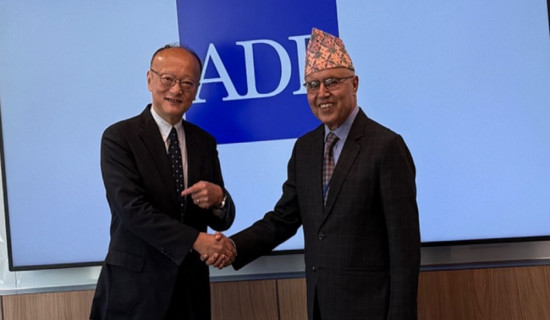- Thursday, 16 October 2025
Healing Pains With Justice
The process of delivering transitional justice to the families of those killed or disappeared during the decade-long conflict and others who suffered physical and psychological tortures is gaining momentum.
The Law, Justice and Human Rights Committee under the House of Representatives (HoR) has lately constituted an 11-member subcommittee to discuss an amendment bill on the Enforced Disappearances Inquiry, Truth and Reconciliation Commission Act, 2014. The subcommittee has been mandated to submit its report to the parliamentary committee within three weeks after holding extensive discussions with relevant people and the conflict victims.
The government had tabled the bill in the Lower House of federal parliament more than two months back so as to deliver the transitional justice to the deserving persons and conclude the remaining tasks of the peace process without delay. In November 2006, the government and the then CPN-Maoist had signed the Comprehensive Peace Accord (CPA). Providing transitional justice was one of the key provisions of the CPA. The decade-long Maoist insurgency came to an end with the signing of that agreement.
As per the CPA, a transitional justice mechanism should have been in place within six months. But the Act was formulated only in 2014. However, two commissions-- Commission of Investigation on Enforced Disappeared Persons (CIEDP) and Truth and Reconciliation Commission (TRC)—were formed in 2015. These mechanisms did their bit to deal with this sensitive issue. The CIEDP prepared a list of persons who were purportedly made disappeared either by the state or the dissenting CPN-Maoist from 1996 to 2006.
The CIEDP received 3,223 complaints while the TRC got as many as 63,718 grievances. The successive governments also seemed serious about settling the drawn-out matter of transition justice by extending terms of the commissions. But there was no significant progress in terms of investigating the cases and delivering justice to the conflict victims. The vital issue of transitional justice remained stalled for years owing to legal obstacles and lack of political consensus.
A provision of the Act related to granting amnesty to all those implicated even in gross human rights violations was a bone of contention. The international community, human rights groups and conflict victims fervently stood against the amnesty provision. In 2015, even the Supreme Court issued a verdict, calling for amending the Act to make it go in compliance with international standards. The Act had to be amended earlier in order to advance the procedures of transitional justice. But it could not happen because of the lingering political instability and reluctance on the part of the leaderships.
Anyway, the present coalition government has taken the initiative to amend the Act and move the process of transitional justice forward. This will help heal the heartbreak of those who have lost their near and dear ones in the conflict. Top leaders of the ruling parties have aimed at completing the remaining of the peace process within two years. The main opposition— CPN-UML-- has also agreed to conclude the transitional justice as soon as possible.
Meanwhile, Prime Minister Pushpa Kamal Dahal Prachanda has promised to make known the whereabouts of those made to disappear during the People's War within two years. Addressing an interaction oranised to mark the 14th Disappeared Fighters Memorial Day in Kathmandu on Sunday, the Prime Minister said that the families of the disappeared would get reparations and justice.
He expressed his deep empathy when he said he understood restlessness that had gripped all the family members of those enforced to disappear. He underlined the need for all political parties to move forward to materialise the dreams of the martyrs and the disappeared persons.

















